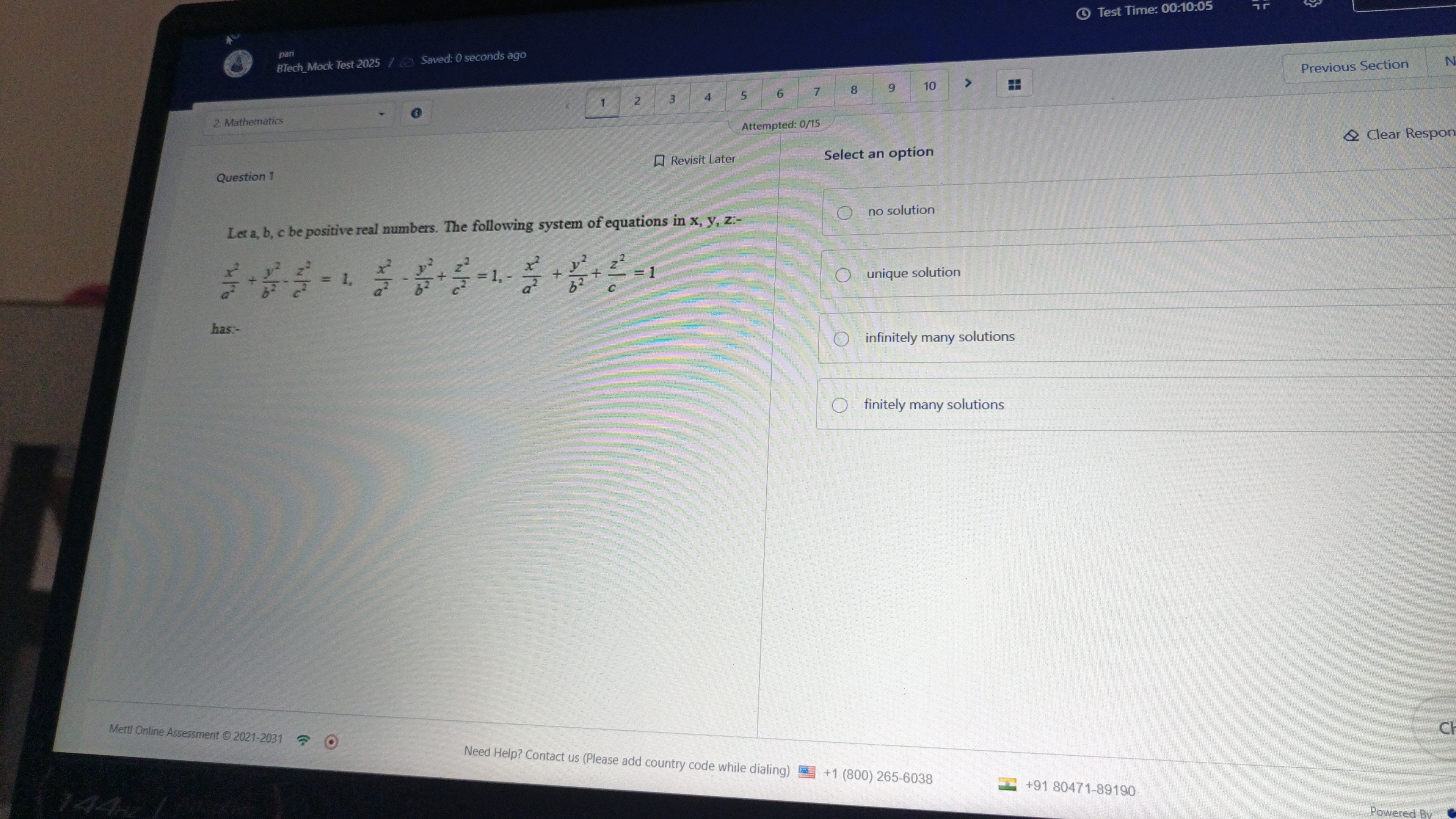Question
Question: Let a, b, c be positive real numbers. The following system of equations in x, y, z:- $\frac{x^2}{a^2...
Let a, b, c be positive real numbers. The following system of equations in x, y, z:- a2x2+b2y2+c2z2=1,−a2x2+b2y2+c2z2=1
has:-

no solution
unique solution
infinitely many solutions
finitely many solutions
infinitely many solutions
Solution
The given system of equations is:
- a2x2+b2y2+c2z2=1
- −a2x2+b2y2+c2z2=1
Let's simplify the notation by introducing new variables: Let X=a2x2, Y=b2y2, and Z=c2z2. Since a,b,c are positive real numbers, a2,b2,c2 are positive. Also, x2,y2,z2 are non-negative. Therefore, X≥0, Y≥0, and Z≥0.
The system of equations can be rewritten as:
- X+Y+Z=1
- −X+Y+Z=1
Now, we solve this system of linear equations for X,Y,Z:
Step 1: Add Equation (1) and Equation (2) (X+Y+Z)+(−X+Y+Z)=1+1 2Y+2Z=2 Y+Z=1
Step 2: Subtract Equation (2) from Equation (1) (X+Y+Z)−(−X+Y+Z)=1−1 X+Y+Z+X−Y−Z=0 2X=0 X=0
Step 3: Substitute back the original expressions for X, Y, Z From X=0: a2x2=0⟹x2=0⟹x=0
From Y+Z=1: b2y2+c2z2=1
So, the original system of equations simplifies to: x=0 b2y2+c2z2=1
Step 4: Analyze the equation b2y2+c2z2=1 This is the equation of an ellipse centered at the origin in the y-z plane. Since y and z are real variables, we need to find how many real pairs (y,z) satisfy this equation.
We can express z2 in terms of y2: c2z2=1−b2y2 z2=c2(1−b2y2)
For z to be a real number, z2 must be non-negative. Since c2>0 (as c is a positive real number), we must have: 1−b2y2≥0 b2y2≤1 y2≤b2 This implies −b≤y≤b.
For any real value of y in the interval [−b,b]:
- If y∈(−b,b), then 1−b2y2>0, which means z=±c1−b2y2. This gives two distinct real values for z. Since there are infinitely many real numbers in the interval (−b,b), there are infinitely many possible values for y, each yielding two z values.
- If y=b or y=−b, then 1−b2y2=0, which means z=0. This gives one real value for z.
Since there are infinitely many real numbers in the interval [−b,b], there are infinitely many possible values for y. For each such y, there is at least one corresponding real value for z. Therefore, there are infinitely many pairs (y,z) that satisfy the equation b2y2+c2z2=1.
Since x=0 is a fixed value, and there are infinitely many pairs (y,z) satisfying the condition, the system has infinitely many solutions (x,y,z).
For example, some solutions are:
- (0,0,c)
- (0,0,−c)
- (0,b,0)
- (0,−b,0)
- (0,b/2,23c)
- (0,b/2,−23c) And so on.
